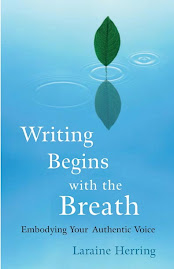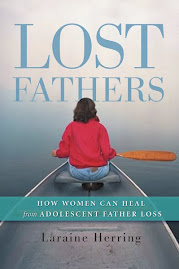Here is the handout I give my advanced students for revising. This is geared toward fiction, but I use a similar version for creative non-fiction classes. I thought this might be beneficial to some of you. Please feel free to use it in your own classes and on your own work.
QUESTIONS FOR SELF-EVALUATION OF WORK
View your own work with the same level of trust, respect, and compassion as you would view the work of another student. One of the most important skills you can learn as a writer is the ability to look at your work with detachment and clarity. The workshop process -- both of your own work and the work of other students -- is the key to learning these skills. Remember that this, like writing, is a process. You will get better over time.
Writing is a process. The beginning drafts (notice the plural) show the many directions a piece can go in. As you proceed through the re-vision-ing process, you let go of things that no longer stick. Recognize that you needed everything in the beginning to get to the heart of the piece. Some pieces are simply teaching tools for you. Some are stepping stones. And every once in awhile, you get one with teeth. It takes all the stepping stones to find the treasure. The sooner you can be OK with that, the easier your path as a writer will be. Trust me on that.
1) Reread the piece objectively. Read slowly and carefully. Reread it without a pen to mark anything up BEFORE answering the questions.
2) What is the driving question? It's OK if you don't have one yet. That's usually the case for beginning drafts. Write down a list of possible driving questions. You might ask yourself -- what does this story want? Early drafts are generally filled with the possibility of many driving questions. It's up to you to determine which one you want to run with.
3) What does the protagonist want? What is the yearning/desire within the context of the text? (This is not the same as the driving question, though it is often related.) Again, it's OK if you don't know this yet. It's just part of what needs to be uncovered in the piece.
4) What is in the way of the protagonist achieving what s/he wants? How can you make the obstacles more challenging?
5) What is the central conflict? If you can't find it, make some notes around what it could be as you look toward revision.
6) Is there a change or a movement toward a change in the character's arc? If not, examine where this could occur.
7) Read just the dialogue aloud. How does it sound in your mouth? Do you stumble anywhere? Is the dialogue serving multiple purposes within the story?
8) Take a highlighter and highlight parts of your story that are SUMMARY (telling). Take a look at the ratio of scenes to summary. Are you showing what you should be showing? Telling what you should be telling? Are you showing the key moments of change? Does the piece have a good balance? (There's no formula for this.)
9) Does the story have adequate sensory detail? (Are all five senses represented somewhere, somehow?) Where can you add more specific detail?
10) Do the details you have included add something to the story, or are they generic details (height/weight, etc) Make each detail you choose to include unique to the character or setting.
11) Examine the chronology and structure. Are there unexplained gaps in time? Do we have a clear place and time?
12) Are there characters introduced without explanation? Do all the characters included in the piece have a significant role? What would the piece lose if a character were removed?
13) Are there extraneous scenes that provide backstory that is not needed to understand the focus of the exploration of the story?
14) Is this piece a story yet? (Does it have a clear protagonist, a driving question, a conflict, a climax, a resolution of some sort?) Or, is it an event or a series of events? If it is the latter, what do you need to do to ensure that you have a story?
15) What POV are you using? Are you consistent with your choice throughout the story? What is gained by your POV choice? What is lost? Consider what would happen if you changed the POV.
16) What is still interesting to you about the story? Another way to think about this is where is the energy? The answer to this question will help you find a doorway into your next draft.
Suggested Next Steps:
1) Make a list of scenes you can include. Start the prewriting process.
2) Journal for awhile around your potential driving questions. See what you discover. Don't predetermine where you should go or what you should do. FOLLOW the writing. Don't direct it.
3) Ask your protagonist what s/he wants. Be open to the answer being different from what you think it is.
4) Don't be attached to what you have already written. Don't be afraid to let go of what you no longer need. You're not 'fixing' what's currently on the page. You're finding the next level of evolution in the story. The beginning is only the beginning. Nothing more and nothing less.
5) When you find your driving question, what scenes need to occur to meet the needs of the driving question?












5 comments:
Excellent questionnaire, thanks Laraine. I hope you don't mind I've linked your post to my blogpost today.
No, Ann, not at all. :-) Link away!
Laraine
Laraine, I came over from Ann's blog. Great questions. I have copied it and will definitely use it. Thanks so much for sharing. :)
I also found you through Ann's blog! Love this list of questions - it's really helped me to see what's missing from my current work in progress. Thanks for being so generous with your wisdom! Much appreciated.
Glad folks are finding this valuable. I'm redoing my website the beginning of next year & will be posting lots of handouts, etc that I've developed over the years.
Enjoy!
Post a Comment